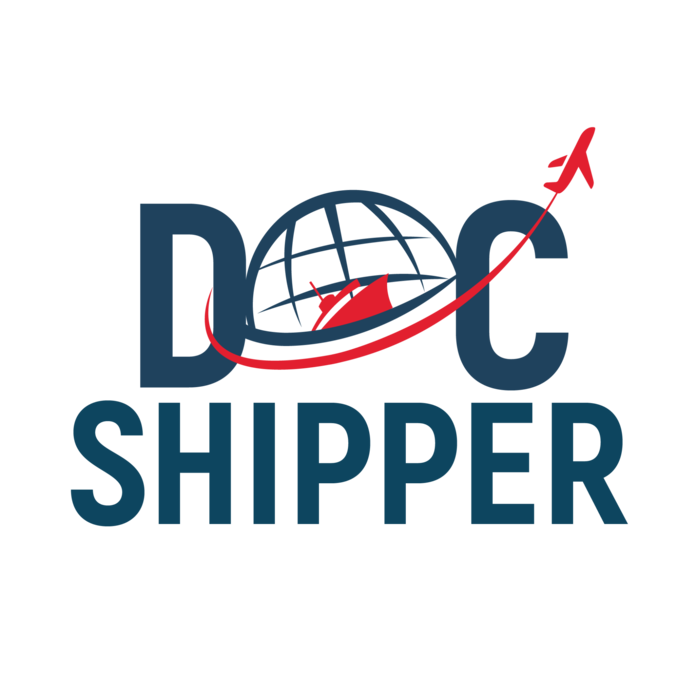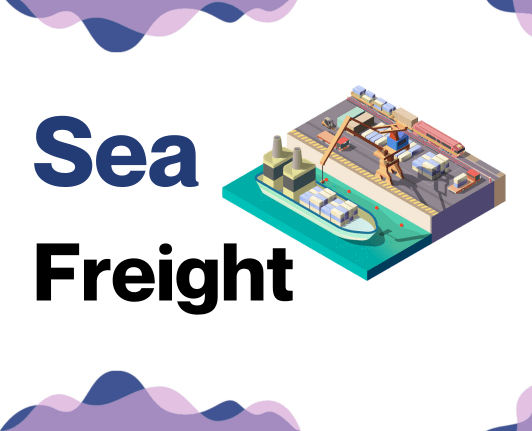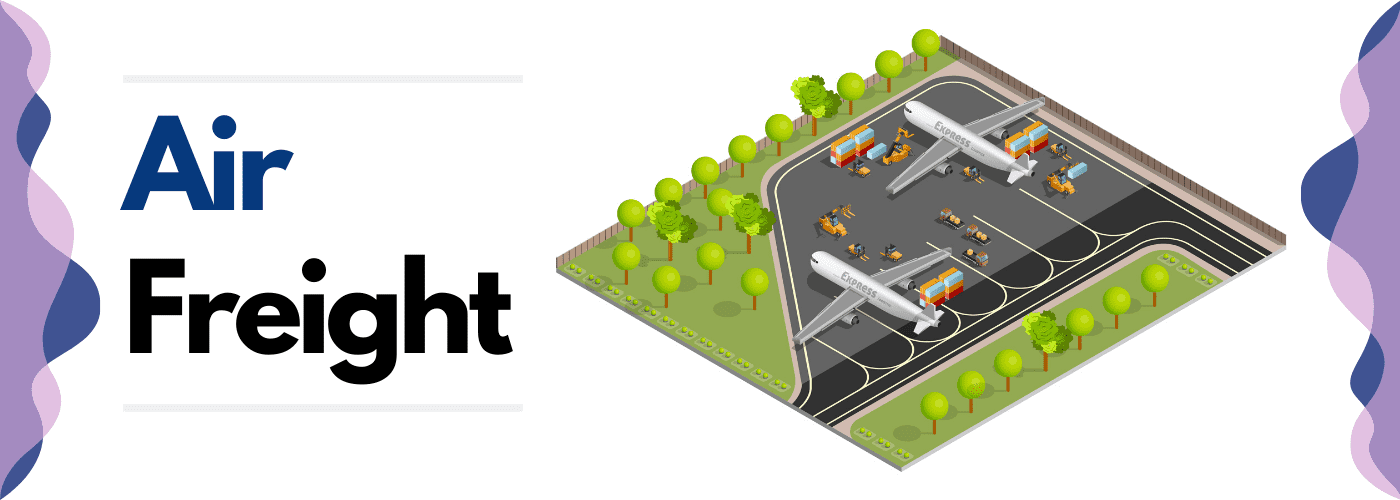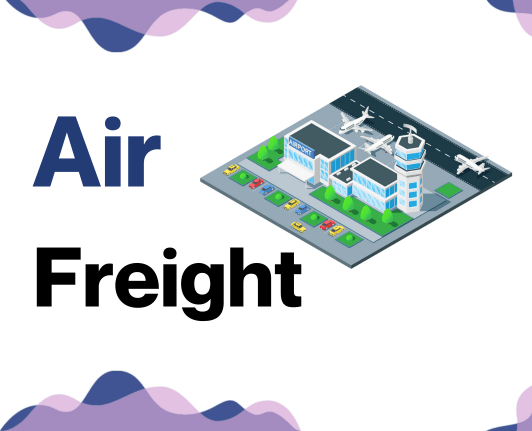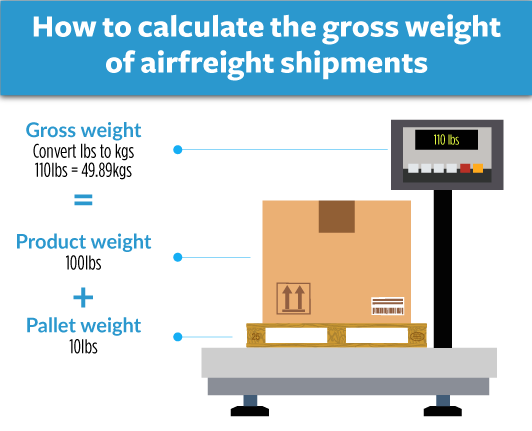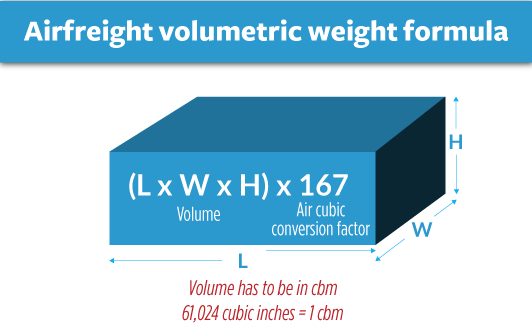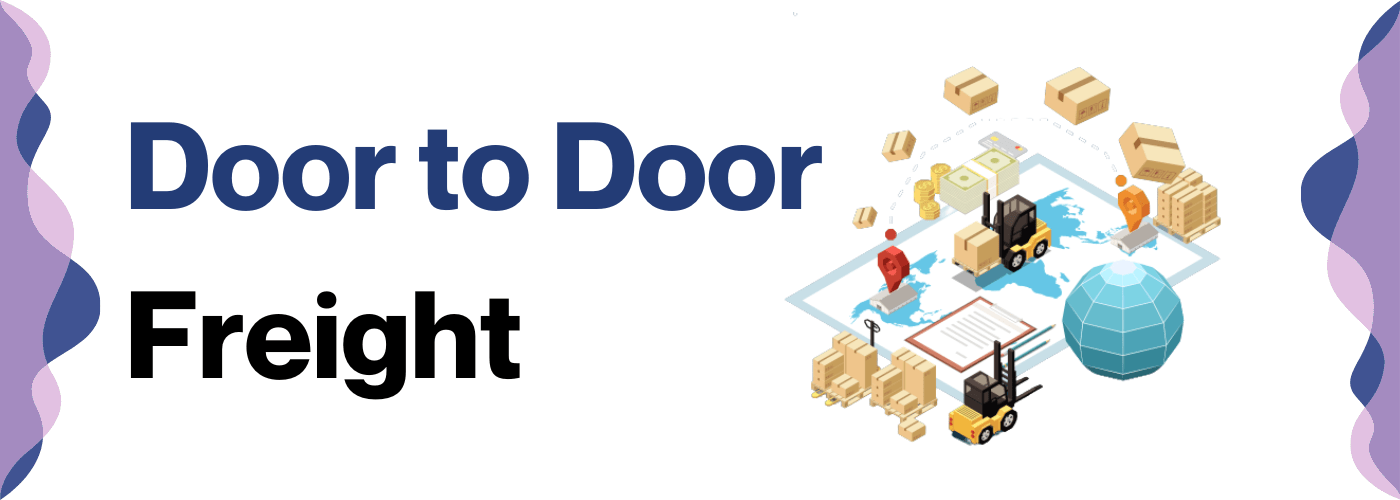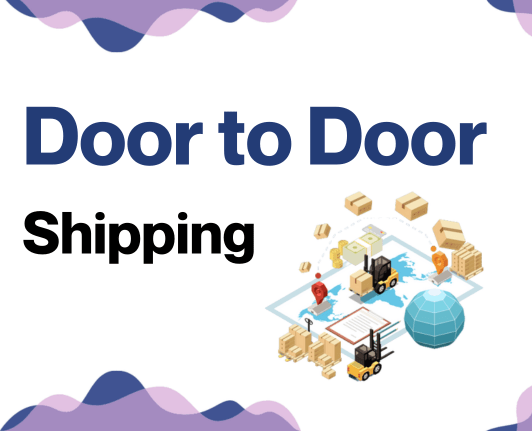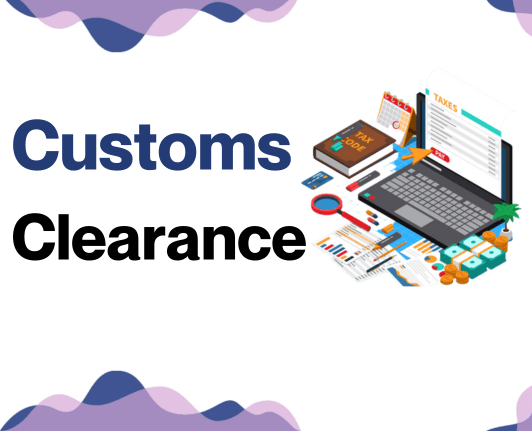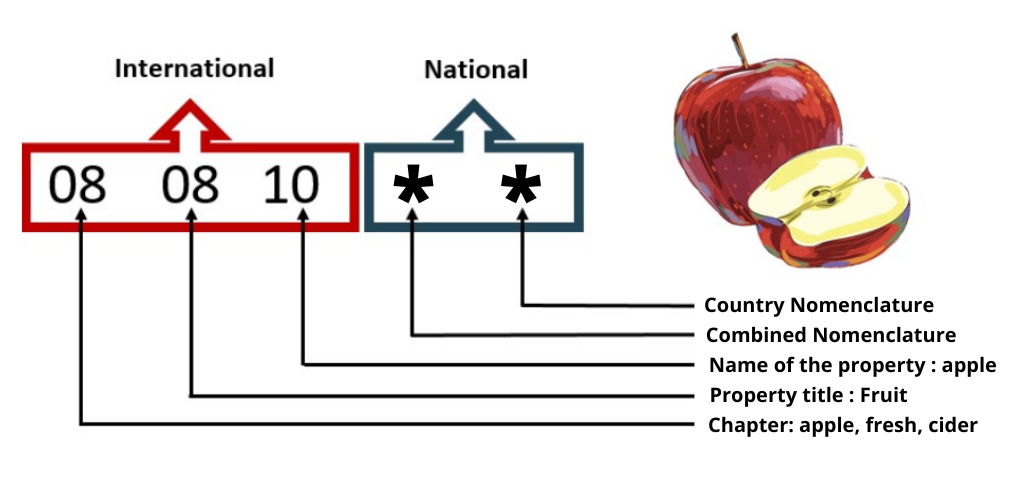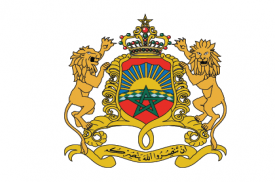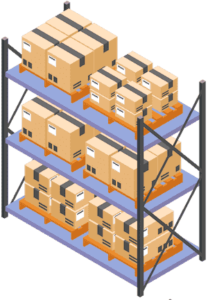Have you ever played a round of chess with camels? Shipping goods between the US and Morocco might just feel like that! With a multitude of factors to consider, such as understanding rates, cracking transit times, and getting a handle on complex customs regulations, international freight transport can be a challenging game to play. Primarily, this guide intends to lighten your load, offering comprehensive and detailed insights on different types of freight options, including air, sea, road, and rail. We will walk you through the daunting customs clearance, enlighten you on various duties and taxes, and provide tangible advice tailored for businesses seeking to expand their horizons. If the process still feels overwhelming, let DocShipper handle it for you! As an international freight forwarder, we master every step of the shipping process and offer bespoke solutions to turn your freight shipping challenges into measurable success.
Table of Contents
ToggleWhich are the different modes of transportation between US and Morocco?
Choosing the right path between America's bustle and Morocco's historic charm isn't just about distance—it's also about journey style. With the vast Atlantic Ocean between them, air and sea are your main transport contenders. Imagine it like choosing between a soaring eagle or a relentless ship—both have their strengths. The eagle flies fast, perfect for perishable items or crucial timelines. The ship, slower but offering larger capacity, is ideal for bulky goods. Finding the best transport truly depends on your freight's nature, making your choice a mix of cost, time, and the specific demands of your cargo.
How can DocShipper help?
Journeying through the complexities of US-Morocco shipping? DocShipper is your trusted partner in the process. We manage all aspects from transportation organization to seamless customs clearance. No detail is too small, no question left unanswered. Request your free estimate or have a chat with our consultants, all within 24 hours. Let's set sail on your shipping adventure together.
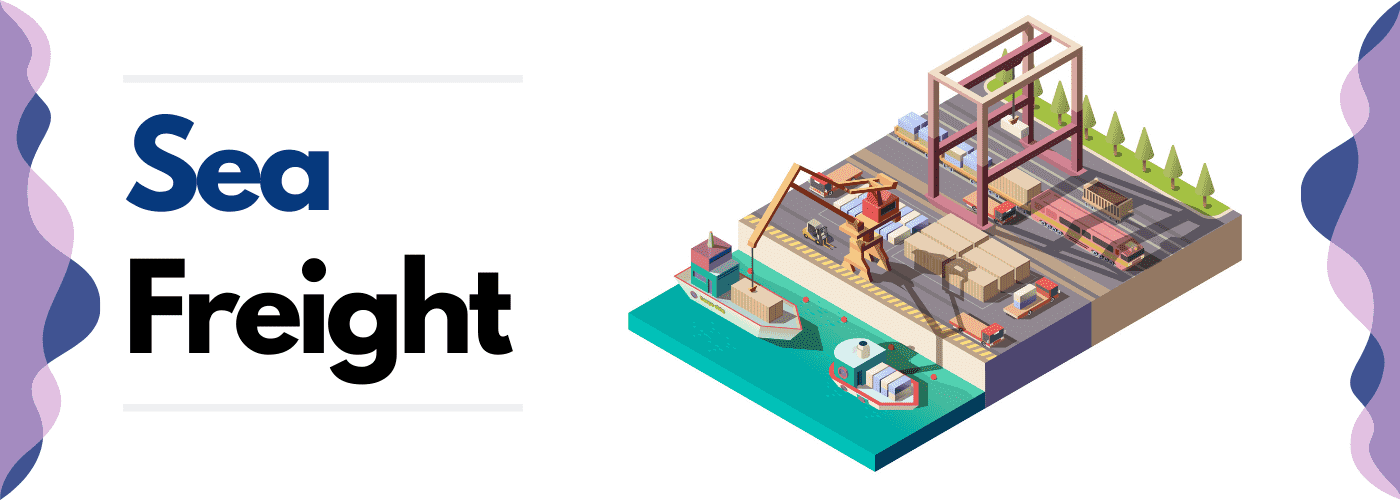
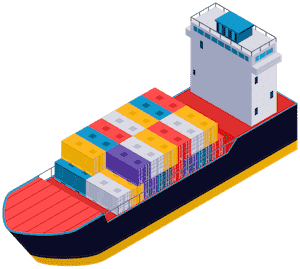
DocShipper Tip: Sea freight might be the best solution for you if:
- You are shipping large volumes or bulky items, as sea freight offers the most space at a cost-effective rate.
- Your cargo doesn't have an urgent deadline, as sea freight typically has longer transit times compared to air or rail.
- Your shipping routes are between major ports, allowing you to leverage the extensive global network of sea shipping lanes.
Sea freight between US and Morocco
Join us as we set sail on a detailed exploration of ocean shipping between the US and Morocco - two nations bound together by a robust trade relationship. Your vessels' primary docking points cover a broad range, from crucial cargo ports like Casablanca and Tangier in Morocco to bustling industrial hubs like Los Angeles and New York in the US. For businesses shipping high-volume goods, sea freight stands as a cost-effective, albeit slow-moving, solution.
While the reality of ocean shipping glitters with promise, it also presents its set of stormy challenges. Businesses often face rough waters – unexpected roadblocks and costly errors – that disrupt the seamless journey of their goods between these nations. But fear not! As we delve deeper into this section, we'll equip you with the necessary nautical charts (best practices) and precise compass readings (specific guidelines) that can steer your shipping endeavors towards smoother seas. Grab your spyglass, and let's voyage into the expansive world of international shipping!
Main shipping ports in US
Port of Los Angeles:
Located in San Pedro Bay, the Port of Los Angeles is the busiest port in the United States by container volume, handling over 9.2 million TEU in 2020. This port is a vital gateway for trade with Asia, holding significant strategic importance due to its vicinity to the trans-Pacific trade route, and robust infrastructure. If your business deals with the Asian market, specifically China, Japan, and South Korea, this port could be an integral part of your shipping strategy, providing a convenient and efficient route for goods import and export.
Port of Long Beach:
Situated adjacent to the Port of Los Angeles, the Port of Long Beach processed roughly 8.1 million TEU in 2020. Key trading partners include China, Hong Kong, and Vietnam. As a critical player in the trans-Pacific trade corridor, this port serves primarily as a hub for imports. If you're looking to import goods from Asia, specifically electronics, machinery, or apparel, the Port of Long Beach could be the most effective solution for you with its advanced cargo handling capabilities.
Port of New York and New Jersey:
Located on the East Coast, this port is the third busiest in the United States, handling 7.5 million TEU in 2019. It's a primary port for European trade, engaging mainly with partners like China, Canada, and India. Owing to its strategic location near densely populated regions, it plays a significant role in the distribution of goods across the East Coast. If your business is centered in the northeastern United States, this port will allow you quick access to major markets.
Port of Savannah:
Based in the Southeast United States, the Port of Savannah recorded throughput of roughly 4.6 million TEU in 2020. Its key trading partners are China, India, and Germany. This deepwater port maintains exceptional accessibility to the United States' southeastern corridor. If you're sending or receiving goods from Southern US or Caribbean markets, the Port of Savannah will serve as a reliable connecting node.
Port of Houston:
The Port of Houston, strategically located on the Gulf of Mexico, is one of the world's largest ports for foreign tonnage. Mainly managing trade relations with Mexico, China, and Brazil, its shipping volume was recorded at 2.99 million TEU in 2020. For businesses in the oil, gas, or petrochemical sector, the Port of Houston's robust infrastructure for handling liquid cargo makes it a strategic choice.
Port of Seattle:
In the Pacific Northwest, the Port of Seattle witnessed a shipping volume of 3.5 million TEU in 2020. The port trades substantially with China, Japan, and South Korea. Being both a major passenger port and goods handling facilitator, this port provides businesses with versatile shipping options. If you're looking for a diverse array of shipping services, especially to or from the Asian markets, the Port of Seattle provides convenient access and reliable services.
Main shipping ports in Morocco
Port of Casablanca
Location and Volume: Located on the Atlantic coast, the Port of Casablanca is Morocco's largest city and economic hub. It's the busiest port in Morocco, serving around 22 million tons of cargo per year.
Key Trading Partners and Strategic Importance: Major trading partners include France, Spain, Italy, and Germany. This port is a significant gateway to the Atlantic Ocean, making it strategically important for transatlantic trade.
Context for Businesses: If you're looking to expand production or distribution in Europe, especially in the countries mentioned above, Casablanca Port may be a crucial part of your strategy due to its high trade volume and strong links with European markets.
Port of Agadir
Location and Volume: Situated on the Atlantic coastline in the southwest of Morocco, the Port of Agadir handles approximately 3.5 million tons of cargo yearly.
Key Trading Partners and Strategic Importance: Agadir’s main trading partners include countries from the EU and landlocked sub-Saharan African countries. The Port is particularly important in the shipment of fruits and vegetables.
Context for Businesses: Given its substantial trade of fruits and vegetables, businesses dealing with fresh produce might want to consider the port for its well-established protocols and efficient handling of perishable goods.
Port of Tangier Med
Location and Volume: The Port of Tangier Med lies strategically on the Strait of Gibraltar and is the largest port in Africa and the Mediterranean in terms of capacity, handling over 4.8 million TEU in 2020.
Key Trading Partners and Strategic Importance: The principal trading partner is Europe, due to the port's proximity to Spain and France, while also serving as a crucial hub for transnational companies wishing to reach African markets.
Context for Businesses: Those looking to widen their reach across North Africa and European counties, such as Spain, will find the Port of Tangier Med an essential asset due to its extensive transshipment facilities.
Port of Jorf Lasfar
Location and Volume: About 120 kilometers south of Casablanca, Port of Jorf Lasfar specializes in bulk cargo, handling around 45% of Morocco's international trade volume.
Key Trading Partners and Strategic Importance: It maintains robust trade relations with the USA, India, and Brazil. As the first privately operated port in Morocco, it's a crucial part of the global supply of phosphate and phosphate products.
Context for Businesses: Businesses in agricultural sectors or chemical industries that rely on phosphate and fertlizers would benefit from considering Port of Jorf Lasfar for the import or export of these goods.
Port of Nador
Location and Volume: Located on the north-eastern coast of Morocco, the Port of Nador typically handles about 2.1 million tons of cargo annually.
Key Trading Partners and Strategic Importance: Its main trading partners are Spain, France, and Italy. With its state-of-the-art facilities, it plays a vital role in Morocco’s trade with Europe.
Context for Businesses: If your enterprise is targeting the European market, joining the numerous businesses that already rely on Port of Nador for their exports and imports may be a winning move.
Mohammedia Port
Location and Volume: Situated on Morocco's Atlantic Coast, Mohammedia Port is the leading oil port in the country, handling about 89.8% of oil cargo.
Key Trading Partners and Strategic Importance: The main trading partners are Europe and certain western African countries. As it hosts the country's only oil refinery, Samir, it is strategically crucial in the oil and petroleum industry.
Context for Businesses: If you're dealing with oil or energy-related commodities, Mohammedia Port presents a significant opportunity to streamline your logistic processes and expand your presence in the North African markets.
Should I choose FCL or LCL when shipping between US and Morocco?
Shipping between the US and Morocco by sea? Perfect. Your choice between Full Container Load (FCL) or Less than Container Load (LCL), also known as consolidation, will mold your shipping journey. It's like choosing a vehicle for a road trip - your selection dramatically influences cost, delivery time, and overall experience. To make this choice less daunting and more strategic, keep reading. We're going to dive into the details and nuances of FCL and LCL, empowering you to make a shrewd decision that perfectly aligns with your unique shipping needs.
LCL: Less than Container Load
Definition: Less than Container Load (LCL) shipment involves the transportation of goods that aren't sufficient to fill a whole container. Hence, multiple LCL freight is combined to optimally utilize the container's capacity.
When to Use: LCL shipping is an excellent cost-efficient choice when the cargo size is less than 13 to 15 cubic meters (CBM). It offers flexibility for lower volume freight, serving as an optimal solution for businesses with flexible timelines and tighter budgets.
Example: Imagine a scenario where a boutique clothing store based in the US orders a small batch of handmade rugs from a vendor in Morocco. The order cannot fill up a complete container; hence, LCL freight is viable, allowing the store to share container space and the associated costs with other businesses that also have smaller shipments.
Cost implications: With LCL shipment, the cost is determined based on the volume your cargo occupies in the container, making it advantageous for smaller-volume shipments. However, remember, LCL comes with additional handling stages, which can add to the total cost in terms of longer transit time and higher handling fees.
FCL: Full Container Load
Definition: Full Container Load (FCL) shipping, involves renting an entire 20'ft or 40'ft container for transporting your goods, sealing it at the origin until it reaches its destination in Morocco.
When to Use: It's perfect when your cargo volume exceeds 13/14/15 CBM. Otherwise, it isn’t economical. The more you ship, the cheaper the unit price is because you’re not sharing the space.
Example: For instance, you own a furniture business and need to ship large quantities from the USA to Morocco. Opting for an FCL container ensures both quantity and security, as your shipment isn't shared with others.
Cost Implications: FCL shipping quote is not dependent on the cargo's weight. Whether your container is half-full or brimming, the cost stays the same. Although it may seem pricier upfront than Less Container Load (LCL), the price per unit is cheaper in high volumes. Plus, the reduced risk of damaged goods from mixing shipments leads to potential long-term savings.
Unlock hassle-free shipping
Wondering about the best shipping method between the US and Morocco? At DocShipper, we understand that every cargo shipment is unique. Our ocean freight experts will help you choose between consolidation or a full container, considering factors like your budget, shipment size, and delivery timeline. We're driven to make cargo shipping hassle-free, regardless of your business's needs. Want to gain further insight before making your decision? Reach out to us today for a free estimation and let's simplify your shipping together!
How long does sea freight take between US and Morocco?
The average sea freight transit time between the United States and Morocco can range widely from 10 to 30 days, depending on various factors such as the specific ports used, the weight and nature of the cargo being shipped. For a tailored quote that factors in the specifics of your shipment, we recommend engaging with an experienced freight forwarder like DocShipper.
When it comes to specific shipping times between the four main sea ports of the United States (Los Angeles, New York, Houston, and Savannah) and Morocco (Casablanca, Agadir, Tangier, and Jorf Lasfar), refer to the table below:
| US Ports | Moroccan Ports | Average Transit Times (Days) |
| Los Angeles | Casablanca | 27 |
| Los Angeles | Agadir | 27 |
| Los Angeles | Tangier | 28 |
| Los Angeles | Jorf Lasfar | 27 |
| New York | Casablanca | 15 |
| New York | Agadir | 15 |
| New York | Tangier | 15 |
| New York | Jorf Lasfar | 15 |
| Houston | Casablanca | 19 |
| Houston | Agadir | 19 |
| Houston | Tangier | 19 |
| Houston | Jorf Lasfar | 19 |
| Savannah | Casablanca | 16 |
| Savannah | Agadir | 16 |
| Savannah | Tangier | 16 |
| Savannah | Jorf Lasfar | 16 |
*Remember, these times are estimates only. Several factors could lead to changes in these transit durations
Please contact DocShipper for confirmation of specific transit times that apply to your shipment.
How much does it cost to ship a container between US and Morocco?
Deciphering the precise cost of shipping a container between the US and Morocco can often feel like a daunting task. Many variables play a pivotal role in determining the final expenses, including your Point of Loading, Point of Destination, carrier preferences, the nature of the items to be shipped, and dynamic features like monthly market fluctuations. It's also important to bear in mind that ocean freight rates can greatly impact your final shipping cost. For this reason, presenting a specific figure isn’t straightforward. However, don't let this deter you! Our dedicated team of shipping specialists is at your service, ready to offer personalized quotes tailored to your unique business requirements.
Special transportation services
Out of Gauge (OOG) Container
Definition: An OOG container, specifically designed for out of gauge cargo, is used for items that don't fit into standard shipping containers due to their weight or dimensions. These exceptional loads require a special container, providing flexibility in logistics.
Suitable for: Large machinery, construction equipment, industrial parts.
Examples: An excavator for a construction project, wind turbines, or factory equipment could be transported via OOG Containers from the U.S. to Morocco.
Why it might be the best choice for you: If your cargo exceeds the size of standard containers, this solution gives you the necessary flexibility.
Break Bulk
Definition: Break bulk is a method of shipping goods individually, as separate pieces or units, instead of in containers. These goods are often labeled and shipped separately.
Suitable for: Large items unsuitable for container loading.
Examples: Electrical transformers, large timber logs, or construction steels are often shipped as break bulk from the US to Morocco.
Why it might be the best choice for you: If your goods are irregularly shaped or oversized, break bulk could be your ideal solution.
Dry Bulk
Definition: Dry bulk refers to the transportation of homogenous commodities in large quantities. These goods are transported in loose form without any packaging.
Suitable for: Grains, coal, and minerals.
Examples: Items such as limestone, corn, or barley might be shipped as dry bulk from the United States to Morocco.
Why it might be the best choice for you: If you are sending large quantities of loose, unpackaged cargo such as grains or minerals, dry bulk shipping would be the most efficient method.
Roll-on/Roll-off (Ro-Ro)
Definition: Ro-ro vessel refers to the method where vehicles drive directly into the ro-ro vessel, and are then securely fastened and transported. They are driven off at the destination.
Suitable for: Vehicles, tractors, buses, and trucks.
Examples: Cars, mobile cranes, and farm tractors could be sent from the U.S. to Morocco via Ro-ro shipping.
Why it might be the best choice for you: If you are shipping driveable cargo, Ro-ro shipping is a robust and convenient system for your transportation needs.
Reefer Containers
Definition: Refrigerated containers, known as reefer containers, are temperature-controlled containers used in freight transport for goods requiring steady cooler temperatures.
Suitable for: Perishable goods such as sea-food, fruits, vegetables, or pharmaceuticals.
Examples: Maine lobsters, California oranges or pharmaceuticals that need to be refrigerated could be sent in reefer containers from the US to Morocco.
Why it might be the best choice for you: If your cargo needs a controlled temperature environment during transit, reefer containers will ensure the freshness and quality of your shipment, from the moment of pick-up to delivery.
If you're looking for the most effective way to ship your goods from the U.S. to Morocco, DocShipper will gladly offer expert advice tailored to your specific needs. Feel free to contact us for a free shipping quote in less than 24 hours; we're ready to assist you in your international freight forwarding journey.
DocShipper Tip: Air freight might be the best solution for you if:
- You are in a hurry or have a strict deadline requirement, as air freight offers the fastest transit times.
- Your cargo is less than 2 CBM (Cubic Meter), making it more suitable for smaller shipments.
- Your shipment needs to reach a destination that is not easily accessible by sea or rail, allowing you to tap into the extensive network of global airports.
Air freight between US and Morocco
Air freight between the US and Morocco is a top contender when it comes to speedy and reliable international shipping. Just picture this – your delicate artisanal jewelry or vital medical equipment, safely whisked across the Atlantic in less than 24 hours. Yes, everything from the small, but precious items to urgent, high-value shipments, finds its wings with air freight. But, remember, the sky isn't always clear!
Just like many tend to underestimate a mountain hike, shippers often trip up in their air freight adventures. You might know your goods' net weight, but did you factor in the volumetric weight? Shipping costs are not always what they seem! And that's just one of your hurdles in the shipping chain. Unheeded, these missteps could mean a sharp hike in your freight bills. Luckily for you, we're here to uncover those hidden pitfalls and help you soar smoothly on your air freight journey.
Air Cargo vs Express Air Freight: How should I ship?
Trying to decide between Air Cargo and Express Air Freight for your US to Morocco shipments? Here's a quick rundown: think of air cargo as hopping onto a commercial flight, luggage snug in the hold, while express air freight is more of a VIP, private jet experience. In this guide, we'll delve into the specifics to help you choose the best option for your business needs. Let's break it down!
Should I choose Air Cargo between US and Morocco?
Considering freight between the US and Morocco? Air cargo could be your ideal solution. Renowned airlines like American Airlines and Royal Air Maroc offer regular services. While transit times might be longer due to set schedules, this method provides enhanced reliability. If cost-effectiveness is key, keep in mind that air cargo becomes increasingly affordable for shipments weighing 100/150 kg (220/330 lbs) and up. By selecting this course, you're navigating towards a budget-conscious, dependable shipping solution.
Should I choose Express Air Freight between US and Morocco?
Express Air Freight utilizes dedicated cargo planes and is ideal for time-sensitive shipments with smaller size or weight cargo. Think about packages below 1 CBM or between 100 and 150 kg. With express air freight, your goods get delivered faster and handled with intense care, prioritizing safety. Recent advances by courier firms like FedEx, UPS, or DHL have made this service an efficient and reliable choice. If quick delivery and security for your merchandise are at the top of your list, express air freight is what you need when shipping between the US and Morocco. Remember to consider the costs and requirements associated with this type of service.
Main international airports in US
Los Angeles International Airport
Cargo Volume: More than 2 million metric tonnes per year
Key Trading Partners: China, Japan, Australia, South Korea, Hong Kong
Strategic Importance: LAX is one of the major gateways for U.S.-Asia trade, heavily favoring transpacific cargo flights.
Notable Features: It's home to one of the largest air cargo operations in the USA, and enjoys easy access to rail and highway systems.
For Your Business: Given LAX's robust connections to the Asia-Pacific region, your goods can reach key Asian markets directly, quickly, and efficiently.
Chicago O’Hare International Airport
Cargo Volume: Over 1.8 million metric tonnes per year
Key Trading Partners: China, Germany, Japan, South Korea, Mexico
Strategic Importance: Its central location makes it an excellent hub for your North America-focused operations.
Notable Features: The airport has state-of-the-art cargo areas, providing services like cargo build-up and break-down, cargo acceptance and release, and more.
For Your Business: It's a perfect blend of volume and location, ideal if your company relies on fast, efficient North America-wide distribution.
Miami International Airport
Cargo Volume: Approximately 2.3 million tonnes per year
Key Trading Partners: Brazil, Argentina, Chile, Colombia, Costa Rica
Strategic Importance: With its focus on Latin America, it’s the perfect gateway to South and Central America.
Notable Features: It’s the top U.S. airport for international freight and known for its expertise in handling perishables.
For Your Business: If you're shipping perishables or trading heavily with Latin American countries, Miami Airport is a top choice.
JFK International Airport
Cargo Volume: Over 1.3 million tonnes per year
Key Trading Partners: United Kingdom, Germany, Italy, Switzerland, Israel
Strategic Importance: JFK serves as the principal international gateway to the US from Europe.
Notable Features: The airport has specialized cargo facilities including a bonded warehouse and a U.S. Foreign-Trade Zone.
For Your Business: If Europe is a key market for your goods, JFK's extensive network might provide the coverage you need.
Ted Stevens Anchorage International Airport
Cargo Volume: Nearly 3 million tonnes per year
Key Trading Partners: China, Japan, South Korea, Taiwan, Hong Kong
Strategic Importance: Its geographical location allows for optimal trans-pacific trade.
Notable Features: The airport is renowned for quick cargo transfer times and fuel-efficient Asian gateway connections.
For Your Business: If you're shipping goods from North America to Asia or vice versa, Anchorage should be on your shortlist. Its location makes it perfect for fuel-efficient cargo flights, which might offer cost savings for your business.
Main international airports in Morocco
Mohammed V International Airport
Cargo Volume: Approximately 120,000 metric tons annually
Key Trading Partners: France, Spain, Germany, United States, and China.
Strategic Importance: As the busiest airport in Morocco, it serves as the primary connection point with Europe and the rest of the world.
Notable Features: The airport's Cargo Terminal offers handling services and storage capacities for all types of cargo, including general cargo, cooled and refrigerated goods, and high-value products.
For Your Business: If your business relies heavily on European markets or diversification into multiple international markets, Mohammed V International will likely be your primary airport of choice for shipping needs.
Tangier Ibn Battuta Airport
Cargo Volume: Approximately 1,500 metric tons annually
Key Trading Partners: Spain, France, and Italy.
Strategic Importance: Proximity to the Strait of Gibraltar and its growing status as an economic hub makes it strategically important, especially for businesses related to textiles, automotive, and aeronautics industries.
Notable Features: Provides a wide range of logistical facilities. The airport is surrounded by several Free Zones, offering numerous advantages including tax incentives to businesses.
For Your Business: If your shipping strategy focuses on European markets, particularly the neighboring Spain, and you deal in automotive or textile sectors, Tangier Ibn Battuta is a right consideration.
Marrakech Menara Airport
Cargo Volume: Approximately 900 metric tons annually
Key Trading Partners: France, United Kingdom, and Germany.
Strategic Importance: Marrakech, being a tourist hotspot, has a vibrant local economy and acts as a gateway to the southern regions of Morocco.
Notable Features: Airport's vicinity to several Free Zones allows for efficient handling and shipping of freight.
For Your Business: If your business is aimed at delivering goods to southern regions of Morocco or targeting the tourist-rich local markets, Marrakech Menara Airport serves as an efficient conduit for your cargo.
Fes-Saïs Airport
Cargo Volume: Approximately 600 metric tons annually.
Key Trading Partners: France, Spain, and the Middle East.
Strategic Importance: Located in Fez, a city known for its rich history and handicrafts industry, gives this airport a unique strategic edge.
Notable Features: Aside from handling cargo, the airport is well-equipped to handle sensitive goods such as valuable art and craft products.
For Your Business: If your business caters to specialized markets like handicrafts or luxury goods, Fes-Saïs Airport's particular handling offerings could benefit your shipping strategy.
Agadir-Al Massira Airport
Cargo Volume: Approximately 500 metric tons annually.
Key Trading Partners: France, Spain, and Germany.
Strategic Importance: Agadir plays a crucial role in the Agrifood sector, most notably in fish exports.
Notable Features: The airport features optimal conditions and facilities for perishable goods, especially seafood products.
For Your Business: Does your business deal with the Agrifood sector, particularly seafood? Agadir-Al Massira's specialized handling for perishable goods may streamline your shipping operations.
How long does air freight take between US and Morocco?
Air freight shipments between the US and Morocco typically take approximately 3 to 5 days. Nevertheless, it's essential to understand that this timeframe can vary. Influencing factors include the specific airports involved in the journey, the weight and nature of your goods, and the time taken by customs procedures. For a precise shipping time tailored to your specific requirements, reaching out to a proficient freight forwarder like DocShipper is highly recommended.
How much does it cost to ship a parcel between US and Morocco with air freight?
Shipping an air freight parcel from the US to Morocco typically averages around $3 to $5 per kg. However, an exact price can't be pinpointed without considering various factors such as distance to/from airports, parcel dimensions, weight, and type of goods. We understand these complexities and are dedicated to assisting you with the best rates. Each quote is thorough, unique, and custom-fitted to your specific needs. So why wait? Contact us to receive your free quote within less than 24 hours. Your business is our priority.
What is the difference between volumetric and gross weight?
Gross weight refers to the total weight of the shipment, including packaging and any internal reinforcements. On the other hand, volumetric or dimensional weight is the calculated weight based on the space the consignment takes up in the cargo.
For Air cargo, gross weight is directly measured using a freight scale. However, volumetric weight requires a calculation: you multiply the length, width, and height (in cm) of your parcel, then divide by 6000. The result will be in kg.
Let's illustrate with an example. If a shipment measures 50cm x 40cm x 30cm and has a gross weight of 15kg, the volumetric weight will be (50 x 40 x 30)/6000 = 10kg. If it was 15kg, this converts to around 33lbs.
Express Air Freight uses a similar approach. The key difference is the divisor in the volumetric weight calculation; instead of 6000, Express Air Freight uses 5000.
Using our previous example, an Express Air Freight volumetric weight will be (50 x 40 x 30)/5000 = 12kg or roughly 26.5lbs.
So, why are these calculations vital? Freight charges are determined based on the higher of the gross and volumetric weight. Therefore, understanding these figures is key to managing your shipment costs effectively.
DocShipper tip: Door to Door might be the best solution for you if:
- You value convenience and want a seamless shipping process, as door-to-door takes care of every step from pickup to delivery.
- You prefer a single point of contact, as door-to-door services typically provide a dedicated agent to handle all aspects of the shipment.
- You want to minimize the handling of your goods, reducing the risk of damage or loss, as door-to-door minimizes transitions between different modes of transport.
Door to door between US and Morocco
Untangling the complexity of international shipping, door-to-door service ensures your cargo rides smoothly from the heart of the US to Morocco's vibrant landscapes. Trading stress for efficiency, it covers everything from collection, shipping, and delivery to your Moroccan destination- a complete shipping solution! Unrivaled in convenience and control, it strengthens your shipping strategy. It's time to unpack all its perks, so let's dive in!
Overview – Door to Door
Struggling with the complexities of international shipping? Door to door service between the US and Morocco is your ultimate hassle-free solution. It's not just about transportation, but it includes everything from pick-up, customs clearance to local delivery at your new destination. While it might be a bit costly, the stress-free nature of this turnkey solution makes it DocShipper's most popular service. It's a game-changer for those seeking simplicity at each step. Unpack the shipping process and watch your worries sail away!
Why should I use a Door to Door service between US and Morocco?
Ever tried juggling flaming bowling balls while riding a unicycle? No? Well, that's what managing freight shipping from the US to Morocco can feel like without Door to Door services. Here are five reasons why you might trade in that unicycle for this service.
1.Logistics SOS: Coordinating pickup, transit, and final delivery across countries can give even seasoned business moguls a headache. Door to Door service snuffs the logistics fire, managing the entire process, so you can kick back and focus on what you do best: running your business.
2. Tick-Tock, Beat the Clock: Urgent shipments need the Flash, not a snail mail approach. Door to Door delivers precisely that - a swift, surefire way to get your goods from point A to B with time to spare.
3. Safety Locker: Got fragile, hazardous, or high-value goods? Scared they’ll end up in an alien warehouse in Wakanda? Worry not! With Door to Door, your complex cargo gets the VIP treatment, ensuring it arrives safely and in one piece.
4. Roll out the Red Carpet: Door to Door isn't just about getting your goods shipped; it's about delivering convenience. From customs clearance to documentation, they handle all the formalities. Your role? Opening the door when your cargo arrives.
5. Destination Domination: This service employs experienced trucking fleets at both origin and destination. Meaning, whether it’s Kansas or Casablanca, the last-mile delivery is as smooth as a Sinatra ballad.
With Door to Door, you're not just shipping; you're mastering the art of international trade. The only thing you'll be juggling is your booming business growth. So put that unicycle away.
DocShipper – Door to Door specialist between US and Morocco
Dock and relax with DocShipper! Entrust us with your door-to-door shipping between the US and Morocco. We manage every detail from packing, transport, customs, to delivery, offering a stress-free freight forwarding experience. No need for you to lift a finger, our dedicated Account Executive has you covered. Get a free estimate in under 24 hours and feel free to call our adept consultants anytime. Experience hassle-free shipping from A to Z with DocShipper. Your shipping journey starts here.
Customs clearance in Morocco for goods imported from US
Customs clearance is the key to successfully importing goods from the US to Morocco, but be warned, it's a complex process laden with potential for unexpected fees and charges. Misunderstandings about customs duties, taxes, quotas, or licenses can leave your goods stranded in customs, ramping up your costs and disrupting your business. Don't worry, though, we'll clarify these complexities in the next sections. Plus, remember, with DocShipper's tailored help, you won't navigate this process alone. We'll be happy to assist with the whole shebang; we operate worldwide, offering services for all types of goods. Just share with us the origin of your goods, the value, and the HS Code. These vital pieces will help us provide a precise cost estimation. Ready to get started? Reach out to our friendly team now. We're here to make your customs journey in Morocco as hassle-free as possible.
How to calculate duties & taxes when importing from US to Morocco?
Sticking the landing when you're importing goods from the U.S to Morocco isn't just about the journey, it's knowing how to stick the perfect fiscal touchdown, too. Calculate customs duties? That's the play! The components are simple: your goods' country of origin, their Harmonized System (HS) Code, Customs Value, the relevant Tariff Rate, and any surprise taxes or fees applicable to your imports. Your first move? Get clear on where your goods kickstarted their journey – where were they manufactured or produced. This starting point observation is your gateway to estimating duties and taxes precisely, making your import process smooth and cost-efficient.
Step 1 - Identify the Country of Origin
Knowing the country of origin is a crucial first step when estimating duties and taxes, and here are five reasons why. First, it helps confirm the authenticity of goods, ensuring they meet Morocco's standards. Second, it influences tariffs—goods from certain countries might enjoy preferential treatment due to trade agreements. For example, the US-Morocco Free Trade Agreement where many US products can enter Morocco duty-free. Third, it assists you in adhering to import quotas – where Morocco restricts quantities on certain goods from the US. Fourth, identifying the country of origin is fundamental to obtaining the Harmonized System (HS) code. Lastly, it helps detect potential illegal activity, such as smuggling or counterfeiting.
It'd be wise to familiarize yourself with both the US-Morocco Free Trade Agreement and Morocco's import restrictions. This knowledge enables you to make informed decisions, ensuring your shipping process remains cost-effective and compliant. If possible, consider pairing up with a local customs broker to help you navigate these complexities.
Step 2 - Find the HS Code of your product
The Harmonized System (HS) code is a globally standardized system of names and numbers to classify traded products. Born out of the need for effective customs control and accurate statistical tracking, it's used by customs authorities all over the world to identify products for duty assessment and data collection.
When it comes to determining the HS code of your product, the easiest route is often straight through your supplier. As they deal regularly with import regulations specific to their goods, they're typically well-versed in the required codes.
However, if that's not feasible, we've outlined a simple step-by-step process for you.
1. Navigate to the Harmonized Tariff Schedule here
2. Enter the name of your product in the search bar.
3. Review the Heading/Subheading column, your HS code will be located there.
A word to the wise, accuracy is paramount when it comes to selecting an HS code. Selecting the wrong code can lead to inconvenient and often costly delays, not to mention potential fines. So take the time to ensure your code is precise.
Here's an infographic showing you how to read an HS code.
Step 3 - Calculate the Customs Value
Whipping out a calculator yet? Not to worry, breaking down the 'Customs Value' is easier than it may seem. Differing from the actual price of your products, the customs value is a blend of a few key elements: the cost of your goods, international shipping fees, and insurance costs. Think of it as the CIF (Cost, Insurance, Freight) value.
Say, you're shipping an antique table that cost $2000 from the US to Morocco. Add in $500 for its international shipping and $100 for insurance. Now your customs value is $2600. This is what Moroccan customs will tax, instead of just the $2000 product price.
Remember, every penny counts in international freight. Therefore, understanding how to figure out the customs value is a game-changer for your business.
Step 4 - Figure out the applicable Import Tariff
An import tariff is a tax levied by governments on imported goods, calculated as a percentage of their value.
In the case of Morocco, MFN (Most Favored Nation) tariffs represent the most common type of import duty, applied to goods regardless of the exporting country. Here are the steps to identify these tariffs:
1. Visit the World Trade Organization's Tariff Analysis Online.
2. Input the previously identified HS code and the United States as the country of origin.
3. The system will then display the tariffs applicable to your product.
For instance, suppose you're importing integrate circuits (HS Code 8542) from the US. The WTO tool indicates an MFN tariff of 2.5%. If your CIF cost is $10,000, the calculation would be: $10,000 2.5% = $250. Therefore, the import duties would amount to $250.
Remember, understanding your company's tariff rates helps manage costs and aids in decision-making for prospective imports. By leveraging online tools and the proper HS codes, you can effortlessly identify tariffs, navigating the often tricky world of freight forwarding.
Step 5 - Consider other Import Duties and Taxes
Understanding import duties and taxes beyond the standard tariff can be tricky. Sometimes, your products may be subjected to extra charges based on their category and country of origin.
Take this example: You're importing leather products from the US to Morocco. Besides the standard duty, you might also incur an excise duty or even anti-dumping taxes if your products are sold cheaper than in the domestic market. Let's not forget the VAT (Value Added Tax), an essential component that varies across countries.
In Morocco, the VAT rate might be, for example, 20%. So, if your customs value is $5000, you would pay around $1000 as VAT. Here's the calculation: $5000 (customs value) 20% (VAT rate) = $1000 (VAT amount).
This example is merely illustrative, and actual rates might vary. Engage an experienced customs broker to ensure you're aware of all potential charges and comply with the specific regulations. Their expertise can help eliminate any unexpected costs, keeping your shipping process smooth and efficient.
Step 6 - Calculate the Customs Duties
Calculating customs duties in Morocco for your American imports can be a breeze when you understand the formula. The underlying components in your calculations are the customs value, VAT, anti-dumping taxes, and excise duty.
Example 1: Import your goods from the US with a customs value of $5000 and a 20% customs duty. You'd pay duties of $1000, without VAT.
Example 2: Adding VAT to the equation, consider goods worth $7000, a customs duty of 15%, and a VAT of 10%. Your total fees become $1750 with $1050 being the VAT.
Example 3: Incorporating excise duty and anti-dumping taxes, take goods valued at $10,000 with a 30% customs duty, 20% VAT, 5% in anti-dumping taxes, and an excise duty of 10%. The total charges recorded will land at $6500.
Understanding these permutations is essential to navigating the costs involved, but why juggle these calculations on your own? At DocShipper, we polish your customs clearance process to a shine, taking over every step, from vetting to choosing the best shipping method. We ensure you aren't overcharged and provide a free quote in less than 24 hours. Expedite your customs clearance, bolster your imports, and let us wire your shipping journey for success.
Does DocShipper charge customs fees?
Understanding fees in cross-border transport can be tricky so, let's clear this up: as a customs broker in the US and Morocco, DocShipper does not charge you any customs duties. This directly paid by you to the government. What we charge is a customs clearance fee for handling all the required procedures on your behalf. Think of it like hiring an accountant for your tax returns. To ensure transparency, we provide all documents from the customs office to prove you only paid exactly what the customs office charged. It's like a receipt for your shipping expenses.
Contact Details for Customs Authorities
Morocco Customs
Official name: General Administration of Customs and Indirect Taxes (Direction Générale des Douanes et Droits Indirects)
Official website: http://www.douane.gov.ma/
Required documents for customs clearance
Confused about customs paperwork? Don’t sweat it! We're about to unpack essential documents such as Bill of Lading, Packing List, Certificate of Origin, and Documents of Conformity (CE Standard). Get ready to lift the veil on these tedious yet vital documents. They can be your ticket to smooth sailing through customs!
Bill of Lading
Navigating the shipping landscape between the US and Morocco can be a bit like a puzzle— with the Bill of Lading acting as your vital 'missing piece.' This official document transfers ownership of your goods, making it essential for customs clearance. In an era of digitalization, an electronic or 'telex' version can revolutionize your process by ensuring speedy transactions and reducing the risk of lost paper documents. For air cargo, the Air Waybill (AWB) comes into play. Similar to the Bill of Lading, it's your ticket to a seamless customs experience. Stay ahead of your shipping game by understanding these documents and their E-versions right from the get-go. It's that simple yet incredibly impactful step that can streamline your journey from the US to the Moroccan markets.
Packing List
Navigating freight between the US and Morocco? A Packing List is a vital companion to your goods. In both sea and air freight, it's your responsibility to provide this document, accurately detailing the nature, quantity, and weight of your shipment. Picture this-- you've consolidated various goods, from fashion accessories to electronic parts, all bound for a boutique in Casablanca. The Packing List serves as a clear map of your shipment's contents for Moroccan customs. A vague listing? That's an avoidable obstacle in Casablanca customs, causing delays and jeopardizing your timely delivery. Bottom line: your Packing List is the heartbeat of your goods' journey. Nail its precision and you pave the way for a smooth, efficient shipping experience.
Commercial Invoice
When shipping goods from the US to Morocco, your Commercial Invoice is a vital player. Think of it as the CV for your goods. It must include specifics like the sender's and recipient's contact details, description of the goods, HS codes, and the value of goods. Missteps in the invoice can lead to issues at customs and unnecessary delays. For example, if the goods' value on your Invoice doesn't match up with the declared value on your Customs Declarations, the shipment could be held up for further inspection. So, always triple-check the details!
Keeping the document transparent and aligned with all other shipping documents ensures a smoother customs clearance process. By focusing on the accuracy and consistency of your Commercial Invoice, you're equipping your shipment for a hassle-free journey to Morocco.
Certificate of Origin
Know your goods' country of manufacture like the back of your hand. The Certificate of Origin (CoO) is your path to enjoying preferential customs duty rates on shipping between the US and Morocco. For instance, a business exporting artisan ceramic tiles from the US to Morocco must clearly state 'US' as the country of manufacture on their CoO. By doing this, you are demonstrating adherence to trade agreements and you may unlock lower duty rates. This simple piece of paper could shave off costs significantly, making your Moroccan tile boutique more competitive. Don't leave this document behind when preparing your shipping dossier. It could make a world of difference.
Get Started with DocShipper
Navigating customs clearance between the US and Morocco can be a maze of paperwork and formalities. Eliminate the stress with DocShipper's services. We'll handle every step of the process, so you can focus on what you do best - running your business. Give us a call - you'll receive a free quote within just 24 hours. Let's simplify your shipping process today.
Prohibited and Restricted items when importing into Morocco
The bitter taste of custom surprises? Avoid pitfalls and additional charges in Morocco’s import regulations. Uncover what items are off-limits or require special permissions, and keep your freight flowing smoothly.
Restricted Products
- Pharmaceuticals and Medicine: You have to get an import license from the Ministry of Health, Morocco. They will check the compliance of your product with national health safety regulations.
- Wireless Transmission and Telecommunication Devices: License from The National Agency of Telecommunications Regulation (ANRT) is essential. They manage and regulate the import of wireless communication devices.
- Firearms and Ammunition: If you're thinking about this category, it's necessary to have a permit from the Ministry of Interior, Morocco. They strictly oversee the import of such items for safety reasons.
- Livestock, Animal products, and Plant materials: You will need a permit from The National Office for Food Safety (ONSSA). They ensure the compliance of animal and plant materials with the country’s sanitary and phytosanitary measures.
- Cultural goods, rare collections and Antiques: The Ministry of Culture of Morocco oversees the import of such items. A permit from them helps in the preservation and rightful circulation of these artifacts.
Remember, this list isn't exhaustive and Morocco's import regulations can change, so always check up-to-date guidance.
Prohibited products
- Narcotics and illegal drugs: All kinds of substances which are classified as drugs or narcotics by international law are strictly prohibited in Morocco.
- Pornographic materials: This includes magazines, DVDs, and any other media that may contain explicit content.
- Counterfeit money and goods: Counterfeit money or brand imitation products are completely illegal.
- Trademark infringing goods: Products that violate trademarks or patents of other companies or individuals are strictly not allowed.
- Certain animal species: The import of certain animal species, particularly endangered ones, without relevant permits is prohibited.
- Radioactive substances: Materials that contain radioactive substances or are radioactive themselves cannot be imported.
- Certain plants, seeds, and soil: Imports of particular types of plants, seeds, and soil may be banned to prevent the introduction of pests or diseases.
- Weapons and explosives: Except for certain licensed entities, import of arms, ammunition, and explosives is barred.
- Certain cultural artifacts: Importation of specific cultural artifacts, especially those that are of significant cultural heritage value, without adequate permissions, is prohibited.
- Hazardous waste: Morocco generally does not permit the import of hazardous waste materials.
Are there any trade agreements between US and Morocco
Yes, there's a solid trade bridge between the US and Morocco, embodied in the US-Morocco Free Trade Agreement (FTA) that came into force in 2006. It allows duty-free access to many goods, facilitating smoother and cost-effective shipping for your business. Plus, ongoing moves to deepen bilateral relations, like the recent Prosper Africa initiative, indicate promising avenues of growth in trade relationships. Keep an eye out for upcoming changes that could spell further benefits for shipping relations between the two nations. These instruments could be the key to unlock your business potential in Morocco.
US - Morocco trade and economic relationship
The economic ties between the United States and Morocco are enriched by a rich history, enhancing bilateral trade and investments. The United States-Morocco Free Trade Agreement (FTA) in 2006 was a landmark, eliminating tariffs on 95% of bilateral goods. Key sectors include agriculture, aviation, and textiles, with major commodities like phosphate and citrus fruits. As of 2022, American Foreign Direct Investment (FDI) in Morocco was $761 million, showcasing trust in the Moroccan economy. Conversely, Moroccan companies invested $36 million in the U.S. and Morocco is the U.S.’ 4th largest goods trading partner in Africa, with $4 billion in total (two-way) goods trade during 2019. These numbers reflect the robust commerce and mutual economic benefits to both nations.
Your Next Step with DocShipper
Confused about US-Morocco shipping regulations, wondering which method to choose, or concerned about customs duties? DocShipper experts thrive in these complexities. We'll streamline your transport requirements, handle paperwork, and ensure smooth customs clearance. You focus on your business, we'll handle the shipping. Ready for a hassle-free, reliable shipping experience? Contact DocShipper now!
Additional logistics services
Uncover DocShipper's full suite of logistics services that streamline your supply chain process. Beyond shipping and customs, explore our comprehensive solutions tailored for your business needs.
Warehousing and storage
Finding the right conditions to store your goods between the US and Morocco isn't a walk in the park. Necessary facilities like temperature-controlled storage for sensitive items may make the hunt trickier. But let that not worry you - we've got you covered. For a deeper dive into how we ensure your goods are in good nick, visit our dedicated Warehousing page.
Packaging and repackaging
The journey from the US to Morocco can be tough on your goods. That's where proper packaging and repackaging become critical, safeguarding your products against damage. Partnering with an experienced agent is key. For a delicate Moroccan lantern or a sturdy piece of American machinery, smart packaging decisions tailored to the product ensure safe arrival. More info on our dedicated page: Freight Packaging
Cargo insurance
Protecting your goods during shipping isn't just about fire hazards. Cargo insurance covers a broader range of risks like accidental damage and theft, working as your safety net in transit. Think of an expensive shipment of electronics accidentally dropped - without this coverage, your profit could plummet. Want peace of mind? Hedge against such incidents with Cargo insurance.
Supplier Management (Sourcing)
Struggling with finding the right suppliers for your US-Morocco shipping needs? With DocShipper's Supplier Management services, we've got you covered. We expertly handle procurement, break down language barriers, and guide you through the sourcing process in Asia or Eastern Europe. Imagine being able to trust in your supply chain, all without leaving your office. More info on our dedicated page: Sourcing services
Personal effects shipping
Planning a move from the US to Morocco? Our personal effects shipping service treats your fragile or bulky items with the utmost care. We understand the challenges posed by long distance moves. For instance, your prized glasswork collection or oversized chaise lounge will be meticulously packed and handled to ensure safe transport, no matter their size or fragility. More info on our dedicated page: Shipping Personal Belongings
Quality Control
Ensuring your goods fulfill the required US and Morocco standards is no cakewalk. Picture this: You manufacture bespoke furniture in Morocco, but customs rejection in the US due to non-compliance turns your profit into loss! That's where our Quality Control steps in, checking for adherence during production to nip such nightmares in the bud. Swap stress for success with us. More info on our dedicated page: Quality Inspection
Product compliance services
Complying with regulations is key when shipping goods internationally. Our Product Compliance Services ensure your merchandise meets all necessary standards, preventing costly delays or rejections at customs. We conduct rigorous lab tests for certification, giving your shipment a smooth journey. See how we do it at our Product Compliance Services
FAQ | For 1st-time importers between US and Morocco
What is the necessary paperwork during shipping between US and Morocco?
Right off the bat, the necessary paperwork for shipping goods from the US to Morocco includes key documents like the bill of lading for sea freight or air way bill for air freight―we'll handle this directly. Additionally, you'll need to supply us with a packing list and commercial invoice. Depending on your specific goods, there may be other documents required, such as a Material Safety Data Sheet (MSDS) or various certifications. It's crucial to ensure all documentation is in order to facilitate a smooth shipment process.
Do I need a customs broker while importing in Morocco?
Indeed, navigating through the intricate customs procedures and regulatory formalities in Morocco can be a daunting task. It's advisable to entrust this job to a customs broker. It's their role to interact with customs authorities and handle the complex processes, ensuring all mandatory details and documents are accurately provided. As DocShipper, we specialize in representing your cargo at customs for the majority of shipments. This not only simplifies your importing process but also ensures compliance with local regulations. Using a customs broker is a proactive step to a smooth and efficient import process in Morocco.
Can air freight be cheaper than sea freight between US and Morocco?
While there's no one-size-fits-all answer, we can provide some clarity. The cost-effectiveness of air or sea freight between the US and Morocco greatly depends on factors like the route, weight, and volume of your cargo. Typically, if your shipment is under 1.5 Cubic Meters or approximately 300 kg (660 lbs), air freight might be worth considering. Here at DocShipper, your dedicated account executive will navigate these complexities and ensure to provide you with the most competitive shipping option that suits your needs.
Do I need to pay insurance while importing my goods to Morocco?
While insurance isn't a compulsory aspect of shipping goods to Morocco, we strongly encourage you to consider it. This precautionary measure is put in place to protect your goods from unfortunate incidents that may lead to loss, theft, or damage. Given that unforeseen circumstances are common in the shipping industry, having insurance ensures the overall safety of your shipment, offering a layer of security and peace of mind. Always recall that it is better to be safe than sorry, especially when it comes to the transportation of your merchandise.
What is the cheapest way to ship to Morocco from US?
Shipping to Morocco from the US usually involves a choice between ocean and air freight. Considering a balance of cost and transit time, we would suggest ocean freight as the most cost-effective option. However, for smaller shipments or urgent deliveries, air freight might be your best bet, though it's significantly pricier. As always, the decision rests on the specificity of your cargo and your business needs.
EXW, FOB, or CIF?
Choosing between EXW, FOB, or CIF depends largely on your relationship with your supplier. Often, suppliers prefer to operate under EXW (Ex Works, meaning at the factory door) or FOB (Free On Board, inclusive of local charges to the original terminal). However, remember that your supplier may not specialize in logistics - that's where we step in. As logistics professionals, we at DocShipper can handle the complexities of international freight and destination processes for you. Our team offers door-to-door services, ensuring a smooth, headache-free shipping experience. Trust us to bridge the gaps and make your logistics flow fluent and efficient.
Goods have arrived at my port in Morocco, how do I get them delivered to the final destination?
When using CIF/CFR incoterms with us, you'll need a custom broker or a freight forwarder to help with goods clearance, payment of import charges, and delivery from the Moroccan port to your final destination. However, you can also hire us for DAP incoterms where we handle everything for you. Please consult your dedicated account executive for clarification.
Does your quotation include all cost?
Indeed, our quotation encompasses all expenses, barring duties and taxes at your cargo's destination. If needed, your dedicated account executive will be more than happy to provide you with an estimated calculation of duties and taxes. At DocShipper, we eliminate the risk of unexpected costs by maintaining transparency and excluding hidden fees.
